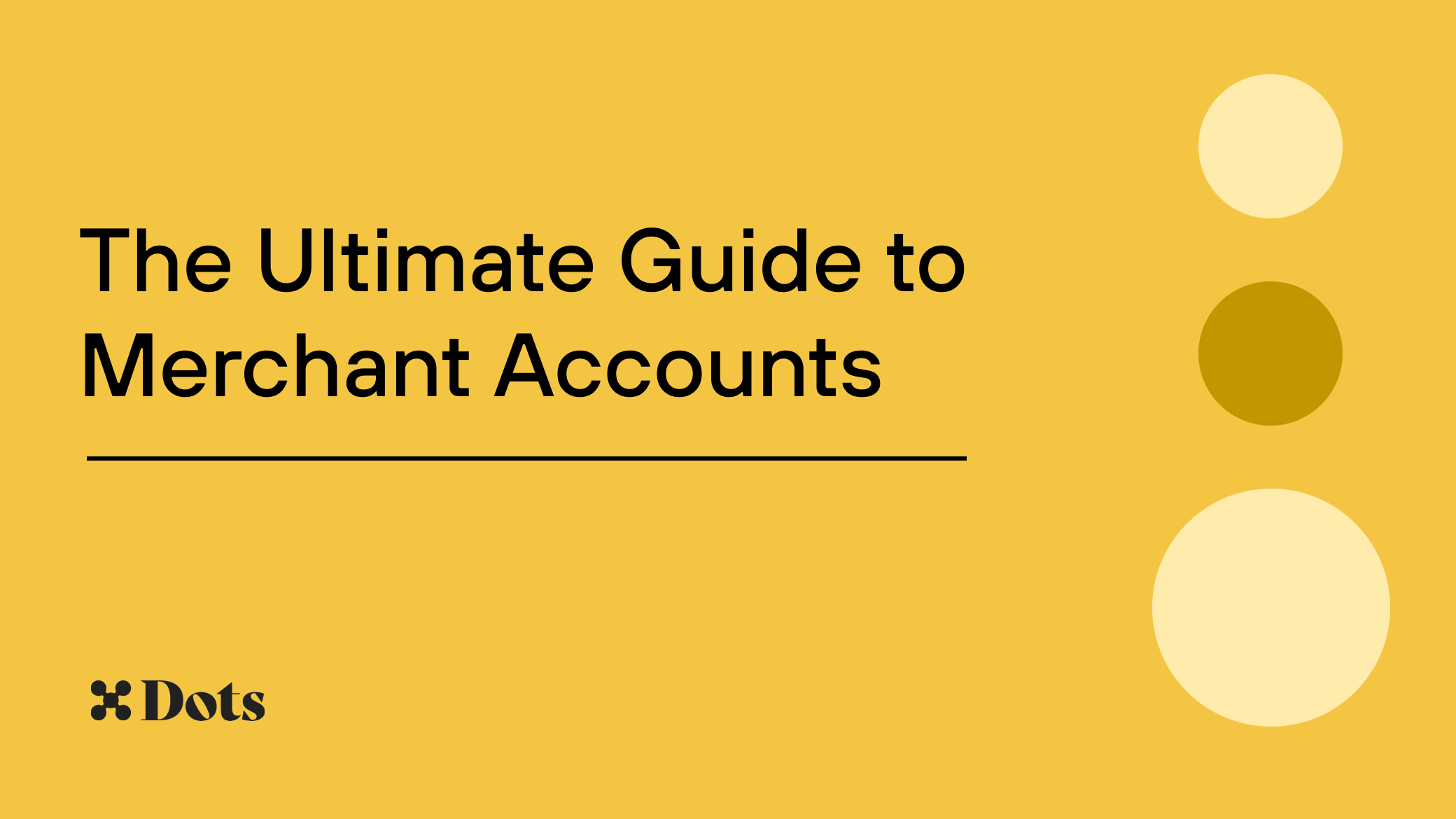The Ultimate Guide to Merchant Accounts

Navigating the complex world of financial transactions in the business landscape requires a fundamental understanding of merchant accounts. As a business owner, having a reliable and secure means to accept payments is paramount to success. In this comprehensive guide, we'll explore the intricacies of merchant accounts, from their definition and types to providers, functionality, benefits, associated fees, and tips for choosing the right provider for your business.
A Quick Definition
At its core, a merchant account is a specialized bank account that allows businesses to accept payments, typically through credit and debit cards. This account acts as an intermediary, facilitating the transfer of funds from a customer's bank account to the merchant's account. It plays a pivotal role in enabling businesses to process electronic payments seamlessly.
Merchant accounts are essential for businesses of all sizes, providing a reliable mechanism to accept payments, enhance customer convenience, and streamline financial transactions.
The Different Types
Retail
Retail merchant accounts are designed for businesses that primarily operate in physical storefronts. These accounts are tailored to handle face-to-face transactions, utilizing point-of-sale (POS) systems and card readers. Retail merchant accounts are well-suited for businesses like traditional retail stores, restaurants, and other brick-and-mortar establishments.
Internet
Internet merchant accounts are specifically crafted for businesses conducting transactions online. In the realm of e-commerce, where digital payments are prevalent, internet merchant accounts enable businesses to accept payments through their websites. These accounts are integral for online retailers, service providers, and businesses with a significant online presence.
MOTO (Mail Order/Telephone Order)
MOTO merchant accounts cater to businesses that accept payments through mail or telephone orders. This type of account is crucial for enterprises that engage in remote transactions, allowing customers to place orders via mail or phone. MOTO merchant accounts streamline payment processing for businesses that may not have a physical presence but still require a secure means to accept payments.
Merchant Account Providers
Choosing the right merchant account provider is a critical decision for any business. There are two primary types of providers — banks and Independent Sales Organizations (ISOs).
Banks
Traditional banks offer merchant account services as part of their suite of financial offerings. While opting for a bank provides a sense of familiarity and stability, the application process can be stringent, and fees may vary. Banks often require a thorough credit check and may have more rigid criteria for approval.
Independent Sales Organizations (ISOs)
ISOs are third-party entities that specialize in providing merchant account services. These organizations work in partnership with banks to facilitate payment processing for businesses. ISOs often offer more flexibility in terms of approval criteria and fees. Choosing an ISO can be beneficial for businesses seeking a streamlined application process and a broader range of payment solutions.
How Do They Work?
Understanding the inner workings of merchant accounts involves delving into the key processes: authorizations, settlement, and funding.
Authorizations
When a customer makes a purchase using a credit or debit card, the authorization process takes place. This involves verifying whether the customer has sufficient funds in their account to cover the transaction. If approved, the funds are set aside for settlement.
Settlement
Settlement is the process where the funds from authorized transactions are transferred from the customer's account to the merchant's account. This typically occurs at the end of the business day and involves the reconciliation of all transactions.
Funding
Once settlement is complete, the funds are deposited into the merchant's account. This step finalizes the payment process, making the funds available for the business to use or withdraw.
What are the Benefits?
The benefits of having a merchant account are multifaceted and contribute significantly to a business's operational efficiency and financial success.
Merchant accounts:
Expand Payment Options: By accepting credit and debit card payments, businesses cater to a broader customer base, enhancing convenience and increasing sales.
Enhance Credibility: Offering card payment options instills trust and credibility among customers, positioning the business as professional and customer-focused.
Streamline Transactions: Merchant accounts facilitate quick and secure electronic transactions, reducing the reliance on cash and checks.
Enable Online Transactions: For businesses with an online presence, internet merchant accounts open the door to global markets, allowing seamless online transactions.
Associated Fees
While the benefits of merchant accounts are evident, it's crucial to understand the associated fees to make informed decisions.
Common fees include:
Transaction Fees: Charged for each completed transaction, these fees can be a fixed amount or a percentage of the transaction value.
Monthly Statement Fees: Some providers charge a monthly fee for providing statements detailing transactions and fees.
Chargeback Fees: Incurred when a customer disputes a transaction, chargeback fees cover the administrative costs associated with resolving disputes.
Discount Rate: A percentage of each transaction that the provider deducts as its fee.
Setup and Application Fees: Charged during the account setup process, these fees cover administrative costs.
Understanding the fee structure is crucial for businesses to budget effectively and choose a provider that aligns with their financial goals.
How to Choose the Right Provider for Your Business
Selecting the right merchant account provider requires careful consideration of several factors.
Consider the following when choosing a provider:
Fees: Evaluate the fee structure to ensure it aligns with your business's financial capacity.
Customer Support: Opt for a provider with responsive and reliable customer support to address any issues promptly.
Compatibility: Ensure that the provider's services are compatible with your business model, whether it's retail, online, or MOTO.
Security Measures: Prioritize providers with robust security measures to safeguard sensitive customer and transaction data.
Integration: If your business uses specific software or POS systems, choose a provider that seamlessly integrates with your existing tools.
Get Started With the Dots API Today!
As businesses evolve in the digital age, the Dots API stands as a cutting-edge solution to streamline and secure your payment processing. Whether you operate in a retail, online, or MOTO environment, the Dots API offers a comprehensive suite of services to enhance your payment capabilities.
Incorporate the insights from this ultimate guide to merchant accounts, choose a provider that suits your business needs, and embark on a journey of efficient, secure, and seamless payment processing. With the right merchant account, your business can thrive in a world where electronic transactions reign supreme.
